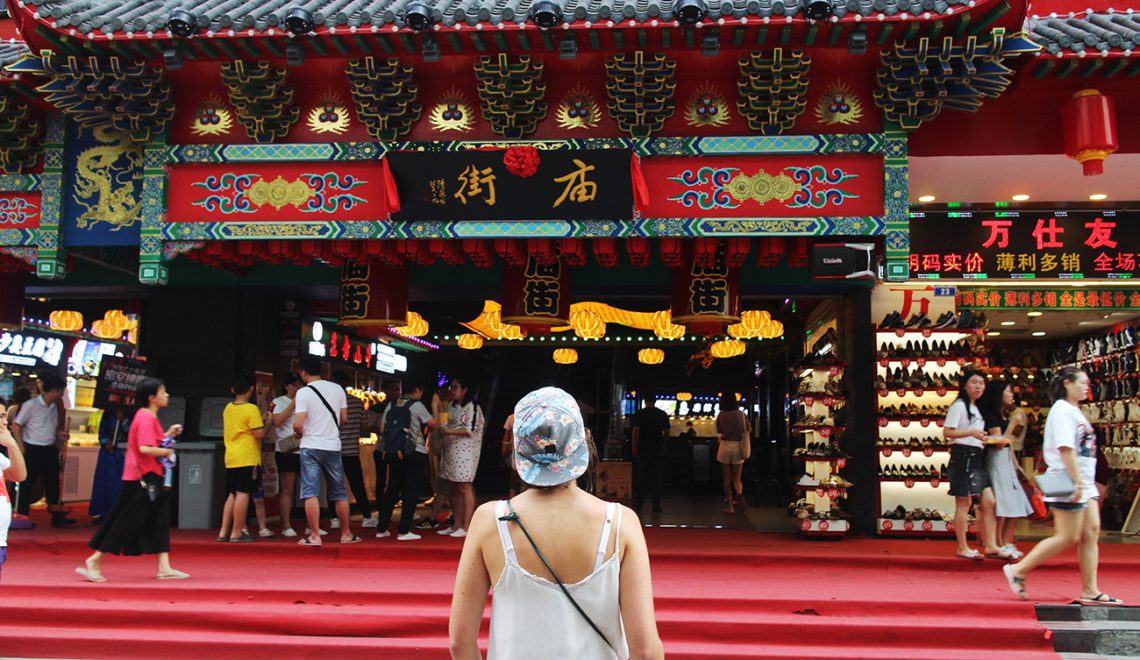Expatriation à Shenzhen, le bilan.

On était parti pour « au moins 2 ans », on avait pas de date en tête, pas de contrat défini, juste l’envie que l’expérience soit significative. Pour finir, comme c’est bien connu que dans le voyage (et dans la vie) rien ne se passe jamais comme on l’a prévu… on a quitté Shenzhen après presque 1 an et demi d’expatriation.
L’heure n’est pas au récit du déménagement express, à la comparaison avec Shanghai (oui, gros spoil: on a migré à Shanghai !) ou encore à tous les voyages que l’on a fait pendant cette période… mais bien au bilan de notre vie d’expat à Shenzhen, en Chine.
La découverte de la culture chinoise.
Pour moi surtout. M-S lui, était déjà venu en Chine pour un voyage en 2013 et puis plusieurs fois à différents endroits du pays pour son travail. Il avait alors eu l’occasion de visiter des lieux très touristiques mais aussi d’être confronté à la culture locale grâce aussi aux déplacements professionnels. Pour ma part, je n’avais jamais mis un pied en Chine avant notre arrivée rocambolesque à Shenzhen, le 4 août 2018.
C’est pourquoi cette première aventure en Chine a d’abord été pour moi synonyme de découverte de cette culture chinoise si différente de la nôtre. J’en parlais déjà dans nos premiers pas en Chine; mais l’adaptation a été en fait très simple. On a essayé de vivre « à la chinoise » le plus possible (appartement dans Futian district et non à Shekou – quartier beaucoup plus international, travail dans une entreprise chinoise pour moi avec 80% de locaux, cours de chinois, nourriture locale même quand on arrivait pas à traduire les menus…etc) et il n’y a rien de plus enrichissant !

Afternoon Tea en Chine: Fried Chicken + Creamy Cakes 
Taxi Scoot pour aller au travail 
Les menus, toujours simple à déchiffrer ! 
Nos premiers ‘dumplings’ fait maison chez une collègue pour le CNY 
Mariées chinoises à la chaine pour les photos, étonnant ! 
On mange aussi à la chinoise, gants plastique et baguettes
J’adore le fait qu’il y ait tant d’histoire, de mythes et de paysages à découvrir en Chine. Bien entendu, tout est différent et avec la barrière de la langue on se sent souvent dans notre bulle, sans vraiment comprendre ce qui se passe autour, mais ça fait partie de l’expérience.
Shenzhen, alias la ville 2.0 – cherche pas, une ville plus moderne, ça n’existe pas.
L’innovation, le maître mot.
C’est quelque chose que j’ai beaucoup dit lorsqu’à chaque fois qu’on visitait l’Europe ou bien que l’on rencontrait des voyageurs à l’étranger … On nous demandait de manière réellement dubitative : « Mais… vous aimez vivre en Chine ? » (Généralement ça arrive juste avant le « Moi, je pourrais pas ! » ou « Je ne sais pas comment vous faites … » :D)
J’ai personnellement adoré vivre à Shenzhen pour cette raison : c’est ici qu’émergent toutes les nouvelles technologies qui feront le monde de demain ! C’est une ville passionnante où se côtoient les quartiers populaires avec marchés ambulants et immenses buildings à la pointe de la modernité. Le cashless est de mise partout, on utilise le smartphone et le paiement mobile pour absolument TOUT.
Et quand je dis tout, c’est par exemple: prendre le métro, commander une pizza, payer les factures, meubler l’appartement, appeler un taxi, communiquer avec les commerçants, livrer le café frais …etc.
Evidemment, il y a des caméras absolument partout, et la reconnaissance faciale qui progresse à pas de géants. Alors oui, niveau respect des données de la vie privée, ça nous fait bondir – nous les européens – mais en attendant je ne me suis jamais sentie en insécurité nulle part à aucun moment (et pourtant je suis souvent seule, parfois très tard dans la nuit et pas toujours très claire :p – c’est vraiment étrange ce que j’écris). Quoi qu’on en dise, cette surveillance impose tout de même le respect des règles, quelles qu’elles soient.

La vue de notre appart sur Ping An Tower 
High Tech Park et son petit temple
Un climat qui plaira à ceux qui aiment avoir chaud. Très chaud.
I remember speaking with a web designer I had collaborated with on a few projects about a sabbatical that he took a while back. He had felt himself burning out and decided that he wanted to take six months totally away from his job. Now, few of us can just walk away from our work for half a year, but he planned it out and made preparations so that he could make it happen. He looked hard at his budget and made some changes so he could save some money and give himself a cushion that would allow him to go without any income during his time off. He admitted to me that it was difficult, but workable, and he did take that time off after about a year of working and saving.
During his sabbatical, he surfed, he read books (not ones about web design), took a cooking class, and, above all, he stayed away from work. No checking emails or calling into the office. He truly took time away, and he said that it was wonderful – not only the time during this sabbatical, but also the moment when he returned to work. He was full of new ideas, refreshed and invigorated. He also reported to me that he had a new outlook on his work and on potential burnout. Having taken the steps to make his sabbatical happen, he now knew that should he ever hit that wall of burnout again, he could find a way to take some significant time off to get back on track.
If you are experiencing burnout, be sure to use your vacation time effectively. If that time is not enough, consider taking a more significant break. It may not be easy to manage, but with some proper planning, you can find a way to make it work.
Le Guangdong et la proximité avec Hong Kong.
About six years ago, I began teaching website design and front-end development at my state university. When I took the position, I thought that it would be a refreshing change of pace that would allow me to share my knowledge and experience in a whole new way. The reality of what I got out of the experience far exceeded my expectations going in.
For me, teaching helped me remember the energy I had when I first started in this industry. It’s easy to let the weight of project deadlines, client problems, and the day-to-day challenges of the job drown the sense of enthusiasm and excitement you had when you were working on websites in the early days of your career. I see that energy in my students and it is infectious. You can’t help but have it seep back into your work as well!





